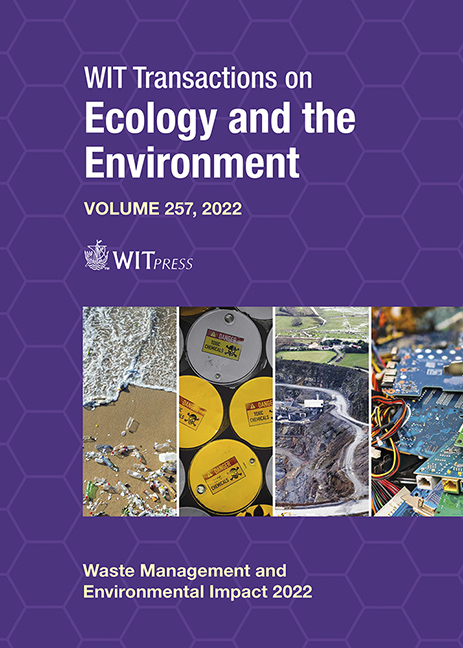BIOMEDICAL SOLID WASTE MANAGEMENT IN LOW-INCOME CONTEXTS: THE CASE OF BEIRA, MOZAMBIQUE
Price
Free (open access)
Transaction
Volume
257
Pages
10
Page Range
97 - 106
Published
2022
Paper DOI
10.2495/WMEI220091
Copyright
Author(s)
ADA CASTELLUCCI, MARCO RAGAZZI, FEDERICO BERGHI, DARIO GUIRRERI, ISACCO RAMA
Abstract
The lack of adequate waste management practices is one of the most critical and common challenges in a low-income urban context. In this sense, the environmental release of biomedical solid waste without proper treatment is a serious risk for the city of Beira in Mozambique. The present work is developed in the frame of the LimpaMOS MOÇambique project (co-financed mainly by the Italian Agency for Development Cooperation) and SIRSU project (Italian Agency for Development Cooperation). These projects involve Italian and Mozambican actors from the public, private, and nonprofit sectors. One of the aims of the projects is to strengthen the proper management, separation, and disposal of biomedical solid waste. The present study investigates two main aspects: (a) the separation and collection of hospital waste in the health units distributed throughout the city; and (b) the centralised treatment in the Beira Central Hospital carried out by an incinerator. Concerning the first point, the case study of the Ponta-Gêa Health Centre shows how it is possible to improve waste sorting, which is currently problematic mainly due to the lack of plastic bags, central for a safe collection and transport but not economically nor environmentally sustainable. Concerning the second point, the Beira Central Hospital incinerator presents significant problems in terms of environmental impact, health, and safety. Using weighing, estimates, and official documentation from the Municipality of Beira, the total production of biomedical solid waste in the city was assessed. The short-term aim of this study is an efficient distribution of the biomedical solid waste between the incinerator and a new electric sterilizer. Finally, the possibility of opening new and more sustainable plants is being evaluated, with the longterm aim of closing the incinerator.
Keywords
biomedical solid waste, hospital waste, low-income countries, Mozambique, management, segregation, incinerator, sterilizer




